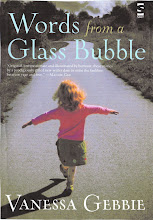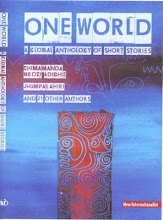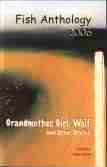The male narrator is out of work, cannot settle. He is visited by a vacuum cleaner salesman (Aubrey Bell) who produces a card with a Mrs Slater’s signature, saying she has won a free carpet shampoo and vacuum.
'Mrs Slater doesn't live here' says the narrator. At this point the reader has been 'set up' to see the narrator as 'Mr Slater'. But Carver is playing with us.
It is a wet day. Bell feels ill. Narrator gives him water and aspirin, asks him to go. Bell - somewhat aggresively - asks if he is speaking for Mrs Slater – and stays to do his job. He demonstrates his equipment, vacuuming a bed, a pillow, showing the resulting detritus on filters - and shampooing a carpet with green liquid detergent.
In context, those are almost the incidentals.
A letter is delivered. Bell contrives to use his bulk and the machine to prevent the narrator from collecting it – and picks it up himself. The question of whose home this is has already arisen. The question of who the narrator is has also arisen. One might assume he is ‘Mr Slater’ but it becomes evident he is not. The narrator seems detached. ‘Its not my mattress’ he says of the bed. His description of the bedroom is very odd – as though he was seeing it for the first time.
‘There was a bed, a window. The covers were heaped on the floor. One pillow. One sheet over the mattress.’
He never says he is Mr Slater. Not only is he prevented from collecting the letter from the doormat – but he allows the letter (bearing the name ‘Mr Slater’) to be taken away at the end of the story, asking only ‘You’re sure that’s who the letter’s for?’
Questions of identity run deep through this story, and I guess that’s why I was drawn to it.
I was/am also fascinated by the notion of ‘collector’ here. The narrator is prevented from being a ‘collector’. Bell is the only physical ‘collector’ in the piece. But the ‘collectors’ here are not only vacuum cleaners, or those who collect letters – but Death. And writers, ironically. Bell makes many comments through the story, about the habits of writers: firstly, W H Auden (who wore slippers in China because of corns). Then Rainer Rilke, (who lived in other people’s castles thanks to benefactors) then Voltaire, with uncomfortable mention of his death mask. Not his real name - 'Voltaire' used over 150 pen names during his career.
The story is all about identity, or lack thereof - at no time do we know the narrator’s name. We assume he is Mr Slater, until he does not argue when the letter to ‘Mr Slater’ is taken away at the end.
Carver’s story is a hugely fascinating, deceptively simple, dealing with existential questions. It was and remains one of my favourites. The weight of themes - non-belonging, displacement (embodied in the reference to Rilke), of physical discomfort, the fragility of the body and our certain mortality (embodied in W H Auden and to some extent in Bell as well as the breakdown of the body to dust throughout) underlined by Voltaire's dead gaze... are mesmerising. That's what short stories can do in the hands of the masters.
**
The above is a vast oversimplification - whole academic papers have been written on this one. If you don't already have 'Short Cuts' do get it. It contains nine stories, including the amazing 'A Small Good Thing'.
Monday, 7 December 2009
Subscribe to:
Post Comments (Atom)




.JPG)























2 comments:
Excellent exegesis and analysis: thank you. This demonstrates how much can be done with the form, as you say - and that's just what the common reader ("wot me, 'common'?"!) needs to know.
From you Minnie, that is a marvellous compliment!
Post a Comment